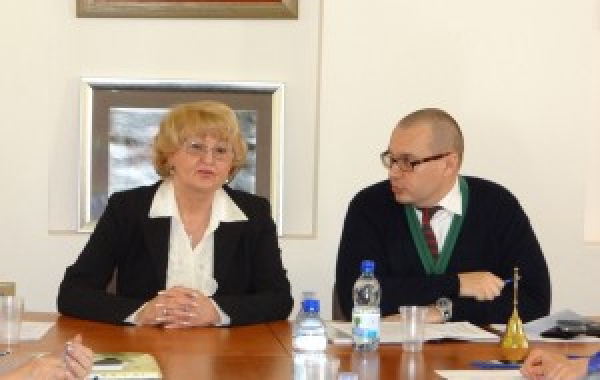How the chief notary of Kuban robbed 21 old ladies and did not choke

Source: www.rucriminal.info
Rucriminal.info continues to publish an investigation about the former chief judge of the Krasnodar Territory, Alexander Chernov, and an impressive number of representatives of the Chernov clan. We have already told in detail about the peculiarities of the activities of the Kuban notary office, headed by Alexander’s wife, Galina Timofeevna Chernova.
The peculiarities that were revealed thanks to the criminal activities of the notary office of Chernova herself, on Levanevsky Street, 174 in Krasnodar.
The beginning of the 2020s was marked in the Krasnodar Territory by two powerful events: the eccentricities of the regional leadership during the pandemic (when farmers, due to the stupid regulations introduced, threw out tens of tons of radishes and greenhouse cucumbers into the trash). And the elderly were then strictly ordered to stay at home and wait for volunteers with bags of food and tubes of toothpaste. The leading crooks of the South of Russia simply could not afford not to take advantage of such a great situation. At that moment, the main members of the organized criminal group that began to exploit the situation were... glorious representatives of the Kuban notary community. They took on leading roles in organizing the latest, unique for criminal Russia, schemes for taking away housing from lonely veterans. The scheme took full advantage of the pandemic with its restrictions. The elderly were unable to leave their homes. This means that their chances of finding out anything were close to zero.
The fact that a large-scale fraudulent campaign to take away housing from elderly lonely residents of the region was being carried out in the Krasnodar Territory became known, in general, by accident. In October 2020, 86-year-old pensioner Lidiya Fomina, a former teacher, received a utility bill stating that the owner of the home she had lived in for over 40 years was a stranger, Raisa Vitalievna Begdai.
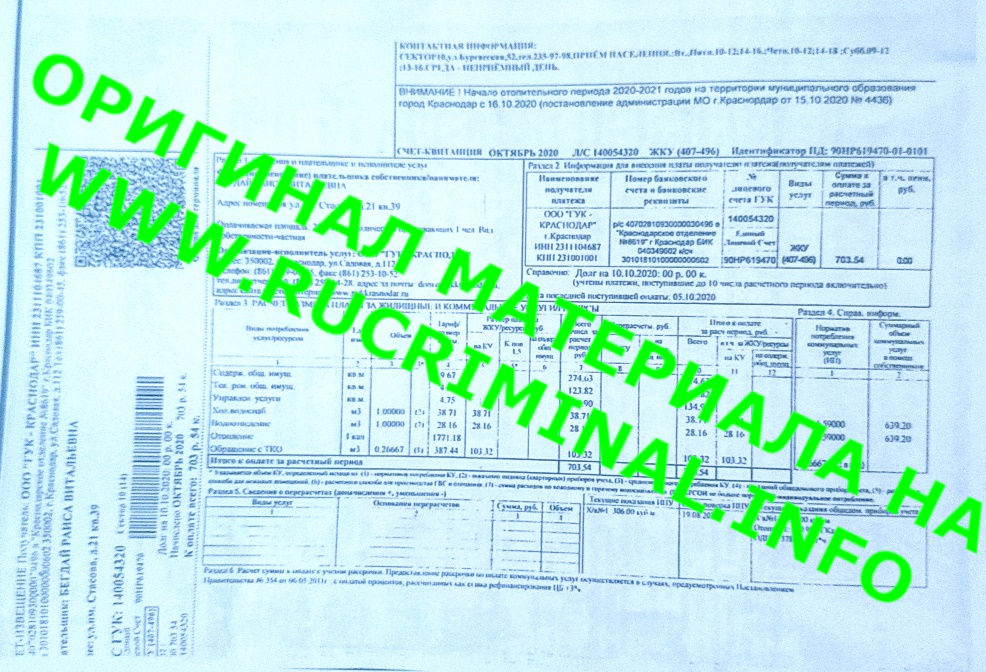
Among Fomina’s graduates was an employee of one of the Krasnodar district prosecutor’s offices. Fomina called her with a request to find out what was wrong with these bills. If the young prosecutor had known that her desire to help her teacher would lead to considerable troubles at work, it is a big question: would she have started to find out all this. But, apparently, due to her youth and faith in the regional law enforcement system, she decided to help the old teacher anyway. It took a little effort to find out that, according to Fomin’s documents... she sold the apartment to a certain Rozhikhin, and he resold it to the "new owner". Also involved in the scheme, a swindler, but already, it seems, a "bona fide purchaser. And it’s good that the Russian media learned about the situation. All the leading publications and TV channels of the country made reports on this high-profile case: Channel 1 and "Russia", NTV and "Ren-TV", "Rossiyskaya Gazeta". Only 21 episodes of "taking away" housing from old people had been identified at that time!
The swindlers’ scheme seemed flawless. The "black" realtor, a gypsy named Galina Zhestovskaya, headed the organized crime group, receiving data on lonely elderly residents of Krasnodar, Sochi, Maikop from employees of regional social structures (while telling about this case, we named more than likely sources of such information, but the investigation was not interested in this, the case materials did not say a word about the sources of obtaining data on pensioners). After which the notary office of Galina Timofeevna Chernova entered the case... All two dozen fake powers of attorney for the disposal of property and savings of victims, written out to the swindlers, were certified by the seal of the notary Chernova G. T. All this "fake" was drawn up by Chernova’s assistant Tamara Tsikunib.
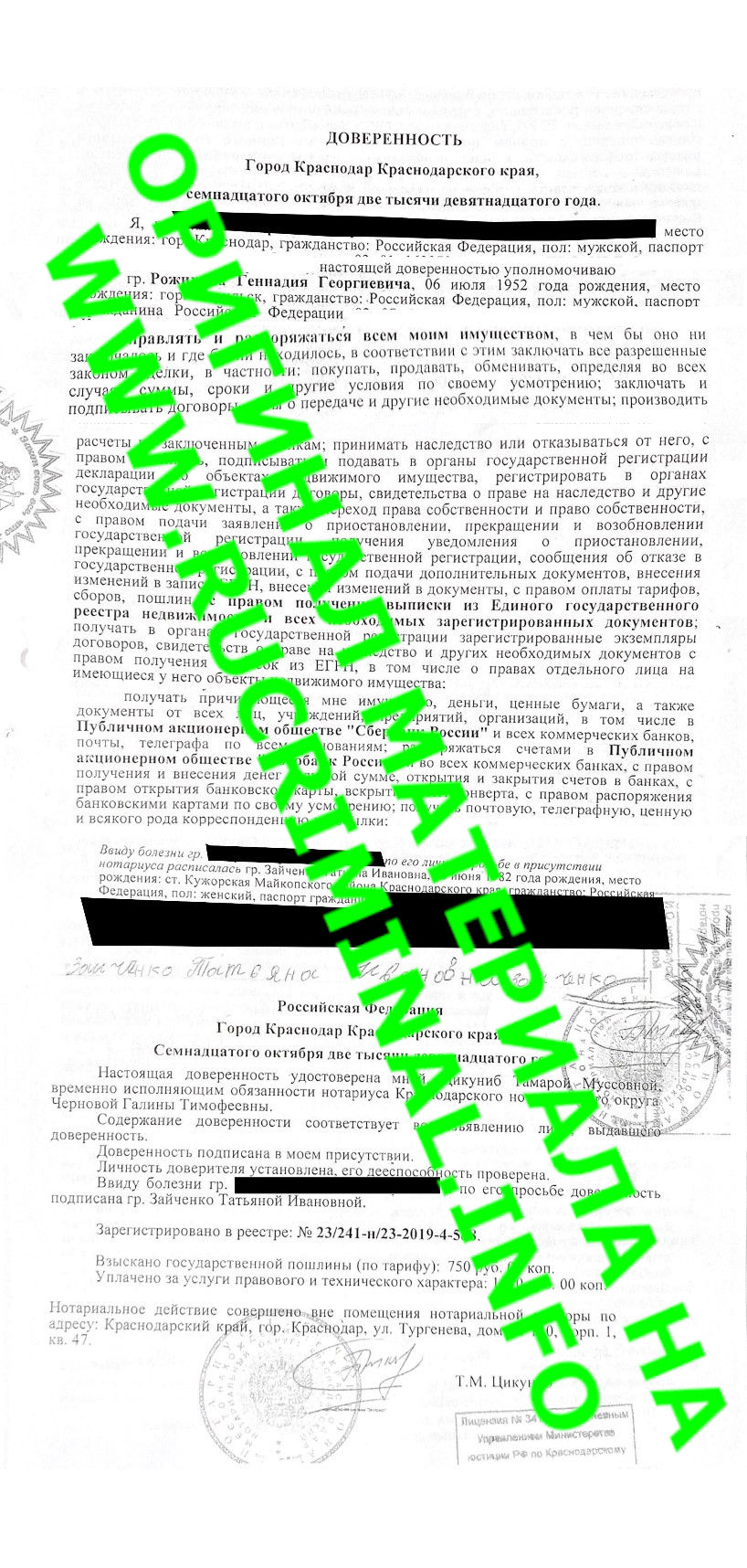
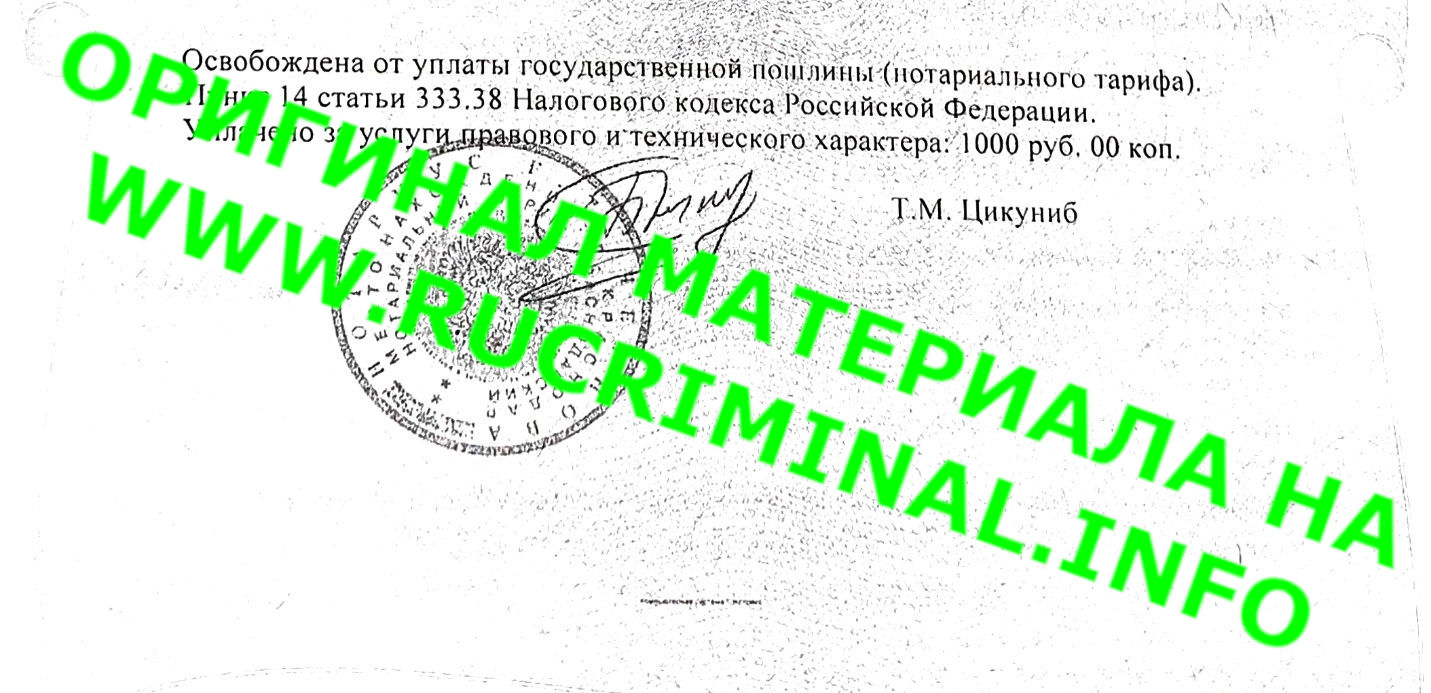
At the current price of real estate in the Krasnodar Territory, the organized crime group, using only this scheme, intended to make off with houses and apartments for a minimum of 250 million rubles.

One of the regional publications revealed the details of this notarial scheme, indicating the names of the members of the organized crime group, and describing in detail the role of Chernova’s office. Without which this fraud would have been simply impossible. Galina Timofeevna, of course, had a chance to "justify herself" by stating that the assistant did everything behind her back, and she was not aware of it. The justification, of course, is crooked. Well, one time it was possible not to notice, well, two or three ... but 21!!! Criminal powers of attorney issued to crooks were stamped and certified, and the notary, the owner of the office, was not aware of it? Moreover, this was not just an office, Chernova was the president of the regional chamber, which should have known that the notary was responsible for all the actions of the employees, all the assistants! And this meant that she was legally obliged to carefully review what and how was certified by subordinates. And what did you have to “blur” your vision so as not to see point-blank how some gloomy individuals came into the office, say that “the grandfather-owner of the house got sick, and they are for him.” And without presenting any supporting documents.
Chernova, having received a slap from the regional publication, immediately rushed to file a lawsuit for insulting her sacred feelings and professional suitability. After the idea with the incriminating judgment the house above the publication collapsed, Chernova was paid for reports in "independent" regional and other media about "some scoundrel journalists" who dared to encroach. The war that had begun, one might say, forced journalists to make a request to the Federal Notary Chamber. Requests were sent asking for an assessment of the work of Chernova’s notary office and its role in this crime to the head of the Russian Notary Chamber, Konstantin Korsik. The answer was surprising. The Russian notary chief explained through the hands of the authors of the answer that, it turns out, only the president of the regional chamber can assess the work of notary Chernova... Chernova...
All subsequent staff checks of federal notary chiefs ended with certificates, pennants handed to Chernova personally by Korsik and confessions of boundless respect and love for the Kuban notary swindlers.
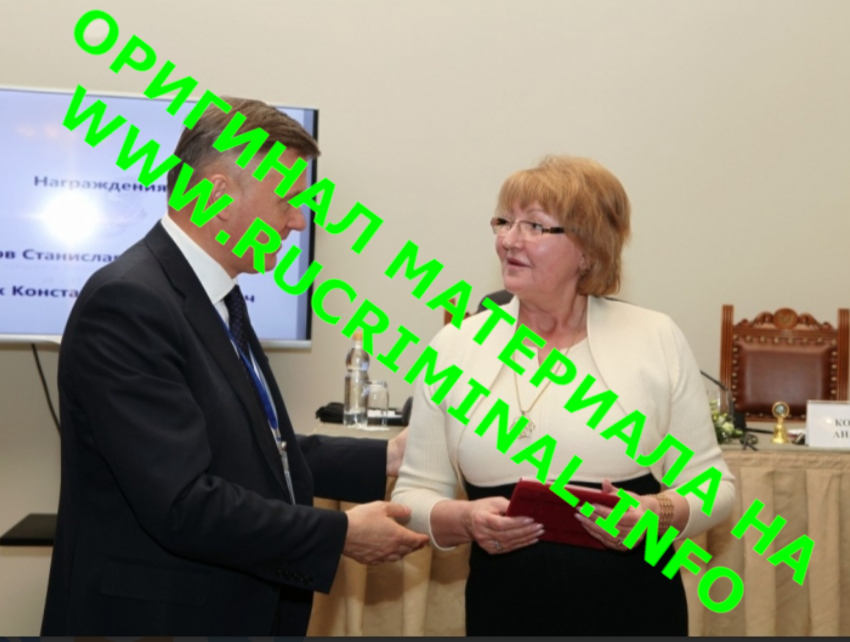
Now that the reason for such indifference has become clear, I just want to breathe ammonia for 24 hours so that this reason can somehow fit into my head. Chernova’s daughter, Elena Ryazanskaya, who is also the vice-president of the regional chamber, whom her mother is now pulling for the presidency as a worthy replacement, is responsible for the services of... escort for the male part of the capital’s authorities. During trips to the most important all-Russian notary seminars, symposiums and trade union meetings.
In a number of trips, young long-legged assistants of notaries (and not only) were noticed, whose only duty was to brighten up the after-work leisure time for the aged capital’s notary "young men" on Viagra. So, it is not surprising that not only crime, but also any shortcomings in the work of the leadership of the regional chamber could never be discovered. The blue pill combined with high-resolution girls made such reports very cute.
But still, the investigation, as if taken under personal control by Bastrykin, including after our publications, had to be carried out somehow. The case was sent to the regional Investigative Committee to investigator Kobzev. The fact that a new head of the regional division of the Investigative Committee, Maslov, had just been appointed to the region spoke “for” it to be at least somehow logically completed and transferred to court. And one could dream that the “new guy”, in order to show his zeal and integrity, would bring the noisy case to a thunderous finale. “Against” such logic was everything else. “Everything else” ultimately won. By and large: that pfft that eventually crawled out of the walls of the Investigative Committee was more than logical from the point of view of Kuban corruption links.
To begin with, Kobzev reduced the number of episodes from the original 21 to ... 7!!! For some reason, the case against Chernovskaya’s office was separated into a separate proceeding. Moreover, Part 4 of Article 159 of the Criminal Code of the Russian Federation, which was used by other members of the organized crime group, was replaced personally for Tsikunib by Article 202. Where it is only about abuse of power by notaries and realtors.
This trick is explained not by a lack of evidence, but by the fact that ... in the Investigative Committee of the Krasnodar Territory, the employee of the year is recognized as V. Badalov — the husband of Elena Khakhaleva’s daughter (their wedding became the loudest wedding in the Russian Federation this century), and Khakhaleva’s son — Kirill — is the husband of Chernova’s granddaughter — Nastya Ryazanskaya, a judge of the regional arbitration, to whom the areas on Yankovsky, which are now included in the lawsuit of the Prosecutor General’s Office, are registered. Well, and another interesting point regarding the independence of the work of the Kuban Investigative Committee. The very same owner of Granny Fomina’s apartment, which started this whole story, turned out to be the wife of ... "the best employee of the Investigative Committee of the Russian Federation" in 2020 — now the head of the second department for the investigation of especially important cases of crimes against state power and in the economic sphere of the Rostov Investigative Committee, Evgeny Viktorovich Chernoskutov, who also worked in the Krasnodar Regional Investigative Committee and repeatedly had "heart-to-heart" conversations with investigators on this case.
In general, both frail, greatly weakened cases were somehow completed in the Investigative Committee. The Tsikunib case was naturally transferred to the Pervomaisky District Court of Krasnodar. And a suitable judge was found — Eduard Lameikin. Brother of State Duma deputy, Dmitry Lameikin. Why suitable? Alexander Dmitrievich Chernov, for many years was the immediate chief of the judicial part of the Lameikin clan. Including the one appointed to hear the Tsikunib case, Judge Eduard Viktorovich Lameikin. The Chernov and Lameikin families are linked by friendly relations not only in the judicial line, but also in the notarial line. The wife of Judge E.V. Lameikin, Ekaterina Lameikin, is a notary of the Krasnodar Notary District. That is, the president of the Notary Chamber of the region, G.T. Chernova, is the immediate boss of the judge’s wife, E.V. Lameikin. Moreover, in the midst of a criminal investigation into the activities of a criminal group, the daughter of Judge Lameikin and notary Lameikin, Anna Eduardovna Lameikin, passed the qualification exam, which was held by... Chernova. An extract from the register of notaries and persons who passed the qualification exam of the Ministry of Justice of the Russian Federation is marked October 19, 2021.
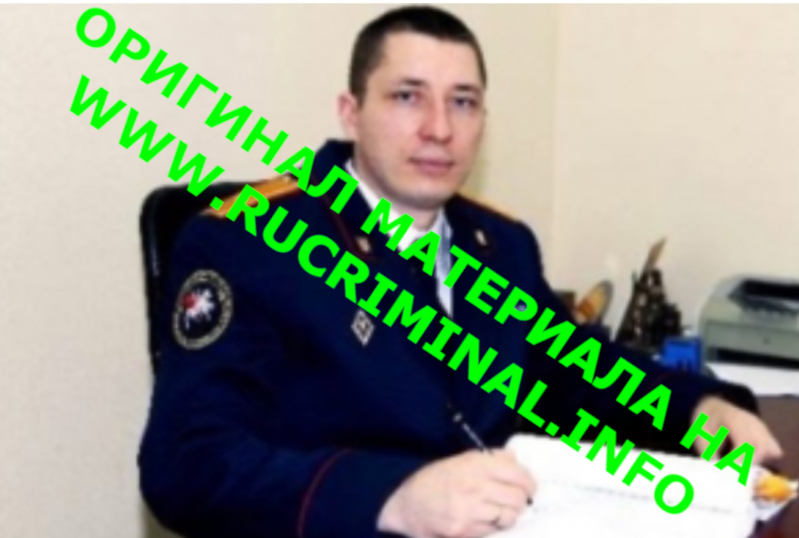
What forces did the Chernov clan use so that no one “noticed” the obvious co conflict of interest in appointing Judge E. Lameikin to hear a case in which the interests of G. Chernova, who is both the boss and associate of the judge’s wife and daughter, are clearly visible?
Judge Lameikin began to attack the defendants with requests not to appear at the hearings, but to trust his upcoming decision in absentia. The plaintiffs in the case were even dictated samples.
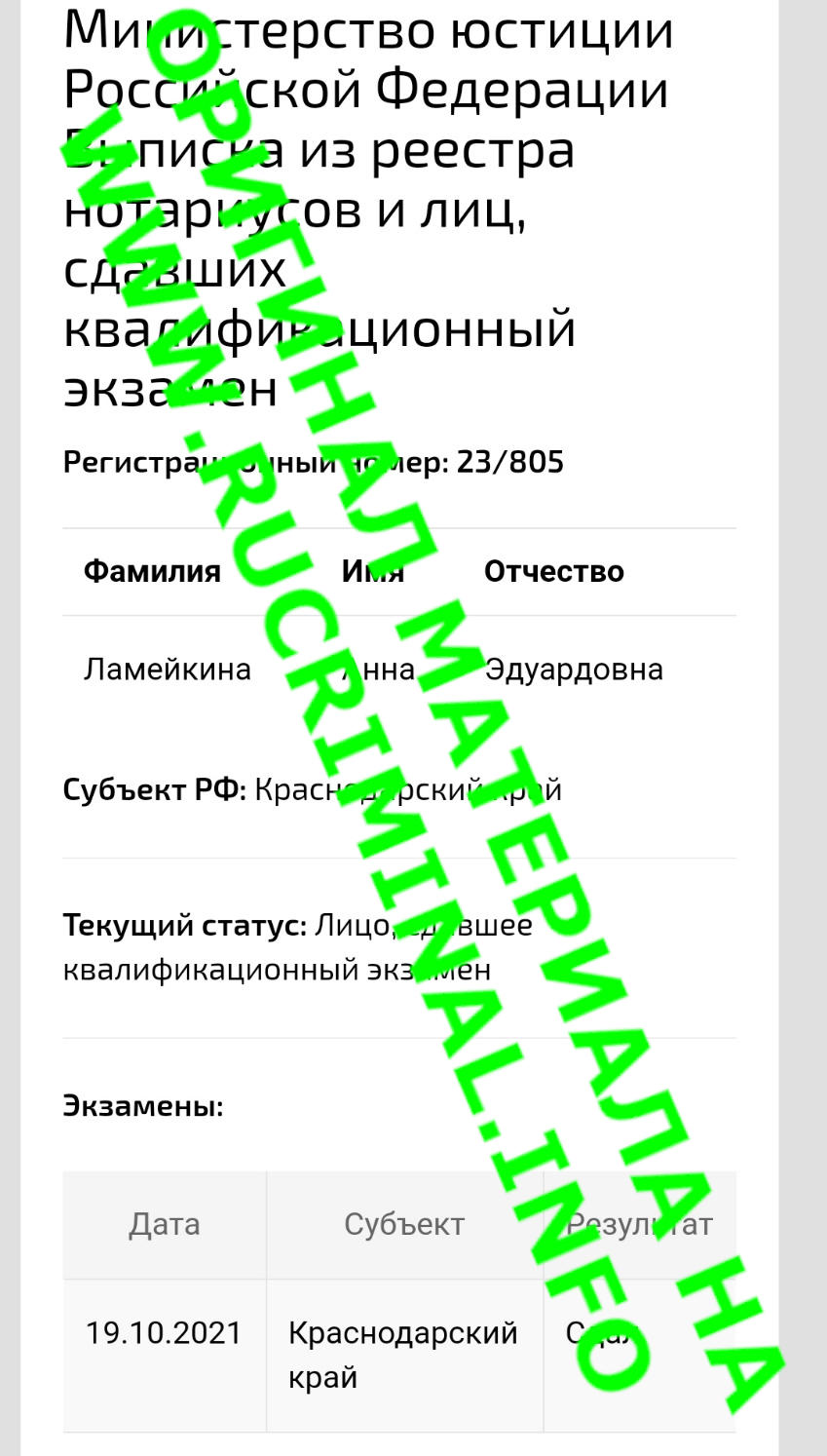
The old people did not fall for the temptation. Therefore, a number of participants in the trials — defendants, or lawyers, or anyone else — began to be struck by ailments. For this reason, the hearings were postponed more than 20! times. Even the State Duma was forced to intervene in this farce, asking the regional prosecutor Tabelsky to nevertheless discern some kind of conflict of interest here. The State Duma found it unusual when the case of notary swindlers was handled by a judge whose wife and daughter are notaries themselves, and whose career depends on those whose interests the verdict could directly affect. Tabelsky responded promptly, just two years after the case was transferred to the court, and the case was transferred to a young judge, for whom this was his first experience, and who had only one option... to close the case due to the expiration of the statute of limitations, which, according to Article 202 of the Criminal Code, is exactly two years. Now, the case against Zhestovskaya and other accomplices is crawling along the same lines in the Leninsky District Court of Krasnodar. There, postponements due to "objective reasons" have been going on for three years already. Among the reasons, there are simply unique ones. For example, Zhestovskaya’s pregnancy. "Young", we note, has been beyond childbearing age for several years. But reality is not important for the court. According to Article 159, the statute of limitations is 10 years. We are sure that the court and the prosecutor’s office, which in this case for some reason does not supervise, but "keeps it under control", will cope with the task of holding out until this deadline! Because it can be assumed that the removal of Zhestovskaya from a long-term prison future is part of her deal with the clan. Any real sentence handed down could well loosen the tongue of the black gypsy realtor. And who knows what she can tell about the roles of the "innocent" notaries.
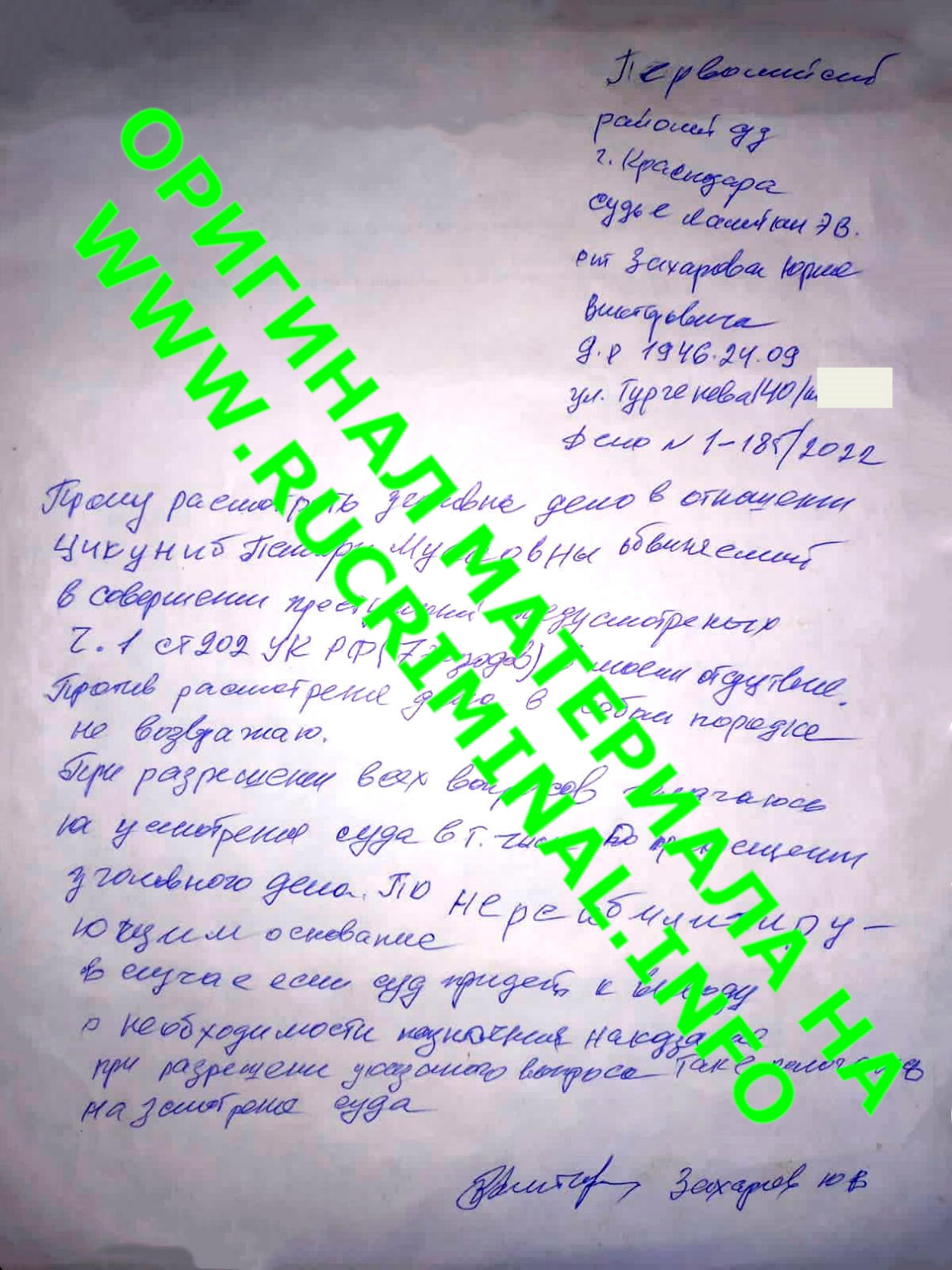
Now, of course, there is hope that these monumental corrupt-nepotistic positions of the Chernov clan will be shaken during the consideration of the claim of the Prosecutor General’s Office in the Krasnogorsk District Court of the Moscow Region, and ideally destroyed. And we hope that this is only the beginning of the collapse of all the corruption schemes that have developed in the regional judicial and law enforcement structures.
Timofey Grishin
To be continued
Source: www.rucriminal.info

